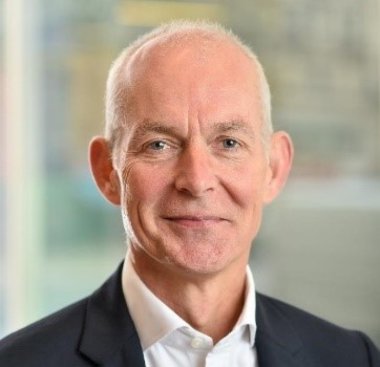16 February 2022
Communications Officer Henry Lockyer spoke to Prof Frans Berkhout [pictured] about his research into climate change, net-zero, and the potential effects on population health.
Please describe your role(s) at King’s College London (KCL)
I am currently a Professor in the Geography Department at KCL, with a research interest in the environment, technology and policy. Until the end of last year, I was Executive Dean of the Faculty of Social Science & Public Policy, with responsibility for academic leadership, for about six years. I came to KCL in 2013 after an academic career in the Netherlands, the United Kingdom, and the United States.
Please describe your research into climate change and the environment
One of the areas I have worked in for some time is climate change impacts and adaptation – this looks at how societies respond to a changing climate. Right now, I am working on the question of social limits to adaptation to climate risks.
Climate change imposes new risks on societies since it changes average climatic conditions, climate variability, as well as stretching climate extremes. This affects a wide range of environmental conditions that support human activities, such as drought as it affects agriculture and food systems, sea level rise as it effects coastal settlements, or ocean warming as it affects fisheries. People adjust to these changes – a process called adaptation.
But there will likely be a level of climate change impacts that, despite efforts to adapt, will impose risks to people, or nature that are intolerable or unsustainable.
How has being a part of King’s Health Partners facilitated your research?
Some of the most significant human and social impacts of climate change are related to health, including the impacts of extreme heat, the changing distribution of infectious disease, and the health consequences of weather-related disasters.
There is also the wider impact on health care systems around the world of the social, economic, and political pressures caused by climate change, including access to clean water and secure food supplies. There is a major opportunity for greater collaboration between King’s Health Partners and wider KCL research on environment and climate issues.
How will the net-zero climate transition improve population health in south east London and beyond, and how do you see this impact growing in the future?
The transition to net-zero has a range of potential positive ‘co benefits’ for population health. Most importantly, a reduction of transport fuel related air pollution will have significant positive impacts on respiratory and heart diseases across the population, from young to old. Increasing the amount of active travel, such as walking and cycling, through on-going investments in pedestrian areas and bike lanes, are also very positive for health.
Finally, advances in home insulation and comfort to enhance the energy efficiency of homes and buildings will improve people’s health, as well as bring benefits for social equity if it is done right. With each step towards net-zero, we magnify these benefits to people’s health in London and elsewhere.
How can staff and students bring a commitment to net-zero into their work and research?
Net-zero is a huge and all-encompassing social, economic and cultural revolution that is now under way. It touches everything. And this means that the opportunities for research, education and engagement by students and staff are enormous. At KCL, we have a very active Climate Action Network (CAN) which has helped reduce carbon emissions by the university and influence its investment policies.
The NHS also has a bold net-zero target, which will change how we deliver health outcomes. So, the opportunities for getting involved and integrating climate change into your work are out there and I would encourage students and staff to find an issue that interests and motivates them.
Liked this article? Listen below to Prof Berkhout speaking about his research at the King’s Health Partners Annual Conference 2021.





